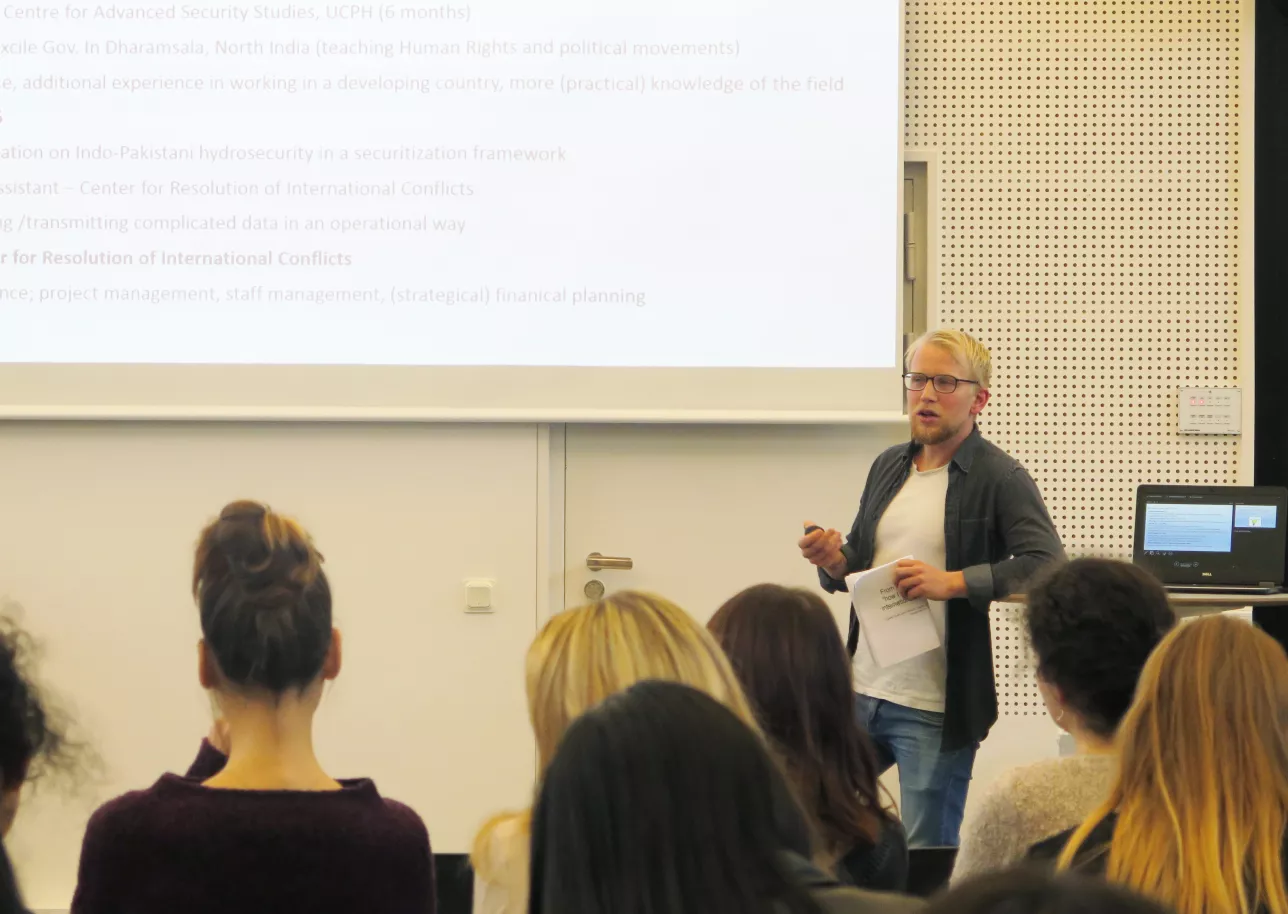Meet alumnus Sune Petersen

Sune Petersen graduated from the Master's Programme in Asian Studies in 2015 and is now a Project Administrator at DIGNITY - Danish Institute Against Torture.
Why did you decide to study the Master’s programme in Asian Studies at Lund University?
After ending my Bachelor’s Degree, I wanted to specialize in Asian Security Studies and I had to choose to study security studies in Denmark and Asian Studies in Lund. I ended up deciding that the geographical focus was more interesting than the theoretical framework (i.e. doing Sec. Studies), as I was free to apply the theories I wanted to Asian studies, whereas I might not be able to apply the geographical focus had I stayed in Denmark.
What has the master programme meant to you professionally?
I’ve been able to stand out vis-à-vis the majority of candidates in Denmark as there’s no great tradition for country studies emphasizing social studies/political science. Also, theories attained while studying at Lund have proven useful in my current position, especially regarding stakeholder analyses in regional contexts.
What advice would you give to potential and current students?
The majority of your studies are up to you, so make sure you choose topics and theories that you find equally interesting and challenging. Also, if you have an idea of what kind of area you want to work in, bolster your experience and enhance your theoretical capacity by working with relevant areas.
Also, be very structured and make sure to know where all your notes and relevant papers are filed. This will become handy and save you a lot of valuable time when writing your thesis.
Supplement your studies with relevant work experience if possible.
Do you have any recommendations for our current students who might be thinking about a career working with NGO/Academia/large international company?
Gain knowledge of the NGO you’re applying at: What are the overall aims, strategies and methods? Where do they engage – which countries, and how? Equally important: What can you offer? Don’t be afraid to point out aspects where you’re qualifications can improve on the current situation whether it’s organizational capacities, strategies or new areas of intervention.
What is your favourite memory from your time at the Centre and/or Lund?
The high degree of flexibility and freedom during my studies, allowed me to pursue a very narrow specialization both theoretical and empirical. I also really enjoyed the relaxed atmosphere between students and educators. Can’t argue about the concept of fika either!
(Interview made in November 2017).

